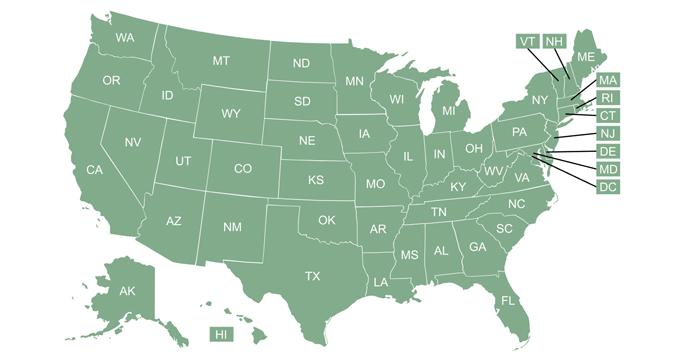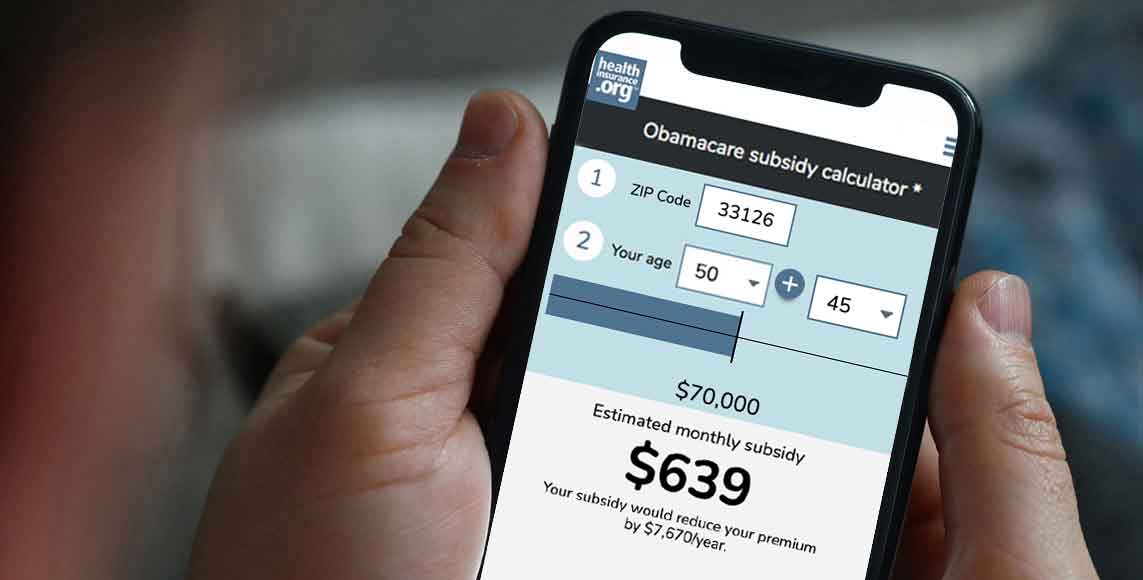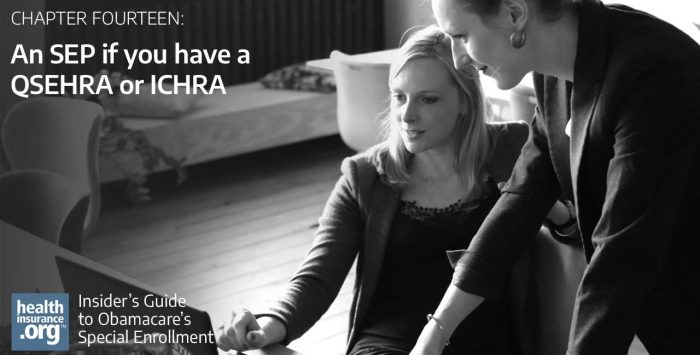Key takeaways
- The 21st Century Cures Act allowed for qualified small-employer health reimbursement arrangements (QSEHRAs) starting in 2017.
- But prior to 2020, gaining access to a QSEHRA benefit was not a qualifying event in the individual market.
- Now, new federal regulations make employees eligible for an SEP when they gain access to an ICHRA or QSEHRA.
- Duration and start of the SEP depends on whether employees are given sufficient advance notice of a QSEHRA or ICHRA offer.
- Effective dates of the SEP depend on when the application is submitted.
For the first few years after the bulk of the ACA’s reforms were implemented, employers were not allowed to reimburse employees for the cost of individual health insurance.
But those rules were relaxed when the 21st Century Cures Act allowed for qualified small-employer health reimbursement arrangements (QSEHRAs) starting in 2017. And the rules were even more relaxed as of 2020, with employers of any size allowed to use individual coverage health reimbursement arrangements (ICHRAs).

If you lost your employer-sponsored health insurance in 2021, you’ve got options that include subsidized individual-market coverage.
Unlike QSEHRAs, ICHRAs do not have a limit on how much the employer can contribute, and large employers can use ICHRAs to satisfy the employer mandate, as long as the ICHRA is substantial enough to make coverage affordable for the employees.
They have different rules, but QSEHRAs and ICHRAs both allow employers to reimburse employees on a pre-tax basis for some or all of the premiums for individual market health insurance.
Although QSEHRAs have been allowed since 2017, gaining access to a QSEHRA benefit was not a qualifying event for a special enrollment period in the individual health insurance market prior to 2020. So employees who already had coverage in the individual market could immediately take advantage of a new QSEHRA benefit offered by their employer, but employees who didn’t already have coverage would have to wait until the next annual open enrollment period (or until they experienced a qualifying event that did trigger a special enrollment period) to enroll in an individual market plan.
The introduction of ICHRAs was expected to increase the number of people receiving employer reimbursements for individual market health insurance premiums. Going forward, some employers will align their adoption of an ICHRA with the calendar year, which will make it easy for employees to select a plan in the individual market during the regular annual open enrollment period. But some employers have a plan year that doesn’t line up with the calendar year, while some aren’t currently offering coverage at all and might begin to offer an ICHRA mid-year.
And there also needed to be a solution for employees who become newly eligible for an ICHRA mid-year – either as a new employee or as an employee who transitions to an ICHRA-eligible class of employees.
How the SEP for QSEHRAs and ICHRAs works
To address this, the new federal regulations provide employees with a special enrollment period in the individual market (available as of 2020) when they gain access to an ICHRA or QSEHRA. Here’s how it works:
- The SEP has been added at 45 CFR 155.420(d)(14).
- The SEP allows employees to purchase coverage in the exchange or off-exchange.
- The SEP is available regardless of whether the person already has individual-market coverage when they gain access to a QSEHRA or ICHRA. So they can newly enroll, or switch from one individual-market plan to another.
- The SEP applies to people who are offered the QSEHRA or ICHRA for the first time, but it also applies to employees who either had (or were offered) QSEHRA or ICHRA coverage in the past, ceased that coverage (or turned it down), and are then offered it again – either during the employer’s annual enrollment period, or because the employee switches to a different class of employees who are eligible for the coverage.
- The SEP allows eligible individuals to pick any available plan at any metal level, or a catastrophic plan if they’re eligible for it.
- For people who have ongoing QSEHRA or ICHRA coverage that renews on a non-calendar-year basis (ie, the coverage is not new for this person, but it’s renewing — and potentially changing — mid-year), there is an SEP tied to the renewal each year under a different SEP rule that HHS had already established for people with non-calendar-year plans. But this SEP limits exchange enrollees to another plan at the same metal level (or if that’s not available, one metal level above or below the plan they already have; you can’t use it to transition from Bronze to Gold, for example, and it would be very unusual for there to be no other plans available at the person’s existing metal level).
- When employees are given advance notice of the QSEHRA or ICHRA offer, their SEP runs for 60 days before the start date of the QSEHRA or ICHRA benefit. This ensures that the individual-market coverage takes effect when the ICHRA or QSEHRA benefit takes effect.
- When employees are not given sufficient advance notice (for example, a new employee who starts work on March 20 and whose ICHRA benefit can take effect on April 1), the SEP also continues for another 60 days after the triggering event (in this example, until the end of May) in order to allow the employee sufficient time to enroll in an individual market plan.
- Enrollees have to provide the exchange or health insurer with proof of their ICHRA or QSEHRA offer in order to qualify for this SEP.
Effective dates
The effective date rules for this SEP depend on whether the application is submitted before or after the qualifying event:
If the application for individual-market coverage is submitted before the triggering event (ie, the date the person’s ICHRA or QSEHRA can start), the effective date of the individual market plan would be the date the QSEHRA or ICHRA can take effect (unless that’s not the first of a month, in which case the individual market coverage would take effect the first of the following month).
If the application for individual-market coverage is submitted after the date the QSEHRA or ICHRA benefit was available, the effective date of the individual market plan will be the first of the month following the application date.
Louise Norris is an individual health insurance broker who has been writing about health insurance and health reform since 2006. She has written dozens of opinions and educational pieces about the Affordable Care Act for healthinsurance.org.








